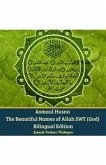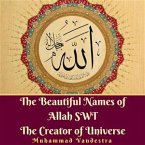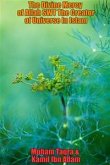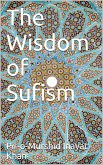In today's world, filled with both extraordinary opportunities and immense challenges, a deep understanding of spirituality often gets overshadowed by misconceptions and cultural nuances. This obscurity is evident when it comes to comprehending who Allah is, a subject many find elusive despite its central importance in Islamic spirituality. The Quran and Hadith offer rich foundations for understanding Allah, yet there remains a palpable gap in how these teachings translate into our day-to-day relationship with Him. This book aims to bridge this divide. Each Name serves as a unique window into the Essence of Allah, making the Divine more relatable and accessible.
Understanding the 99 Names deepens one's relationship with Allah in a profound way. Through these Names, prayers and supplications become more than rituals; they transform into deeply personal conversations with Allah, imbued with understanding and sincerity. These Names are not merely titles; they are attributes that encompass intellectual, emotional, and spiritual dimensions, providing a holistic framework for spiritual growth. Moreover, the Names of Allah manifest in the world around us. They are not abstract or confined to ancient texts but come alive in our daily experiences, offering guidance and clarity in times of confusion and hardship. Understanding these Names provides a moral and ethical framework that aligns with the Divine will, assisting believers in navigating the complexities of modern life.
But the importance of understanding these Names goes beyond personal spiritual development. They can foster a collective sense of unity and interconnectedness among communities, leading to social harmony rooted in a shared understanding of who Allah is. This universal perspective is crucial not only for Muslims but for anyone interested in understanding the nature of ultimate reality, offering a comprehensive view of the manifold attributes of Allah. In summary, this book aspires to be more than a religious text; it aims to serve as a guide to life, offering insights that illuminate the path to a more intimate relationship with Allah.
This critical edition develops on Imam Al-Ghazzali’s (رحمة الله عليه) incredibly insightful kitaab detailing the celestial tapestry woven by the 99 Names of Allah. Like the chronicle of a sovereign, this work arranges the Names into distinct categories, of which both the categories and the Names within each category are sequenced in such a way so as to form a coherent narrative. It begins with Allah’s Attributes as pertaining to his status, then the Attributes pertaining to his Being, followed by his Attributes with respect to Creation; in much the same manner as one would describe a king. The idea is to make the process of understanding Allah’s Attributes more engaging and meaningful so that they may be deeply internalised.
Understanding the 99 Names deepens one's relationship with Allah in a profound way. Through these Names, prayers and supplications become more than rituals; they transform into deeply personal conversations with Allah, imbued with understanding and sincerity. These Names are not merely titles; they are attributes that encompass intellectual, emotional, and spiritual dimensions, providing a holistic framework for spiritual growth. Moreover, the Names of Allah manifest in the world around us. They are not abstract or confined to ancient texts but come alive in our daily experiences, offering guidance and clarity in times of confusion and hardship. Understanding these Names provides a moral and ethical framework that aligns with the Divine will, assisting believers in navigating the complexities of modern life.
But the importance of understanding these Names goes beyond personal spiritual development. They can foster a collective sense of unity and interconnectedness among communities, leading to social harmony rooted in a shared understanding of who Allah is. This universal perspective is crucial not only for Muslims but for anyone interested in understanding the nature of ultimate reality, offering a comprehensive view of the manifold attributes of Allah. In summary, this book aspires to be more than a religious text; it aims to serve as a guide to life, offering insights that illuminate the path to a more intimate relationship with Allah.
This critical edition develops on Imam Al-Ghazzali’s (رحمة الله عليه) incredibly insightful kitaab detailing the celestial tapestry woven by the 99 Names of Allah. Like the chronicle of a sovereign, this work arranges the Names into distinct categories, of which both the categories and the Names within each category are sequenced in such a way so as to form a coherent narrative. It begins with Allah’s Attributes as pertaining to his status, then the Attributes pertaining to his Being, followed by his Attributes with respect to Creation; in much the same manner as one would describe a king. The idea is to make the process of understanding Allah’s Attributes more engaging and meaningful so that they may be deeply internalised.









